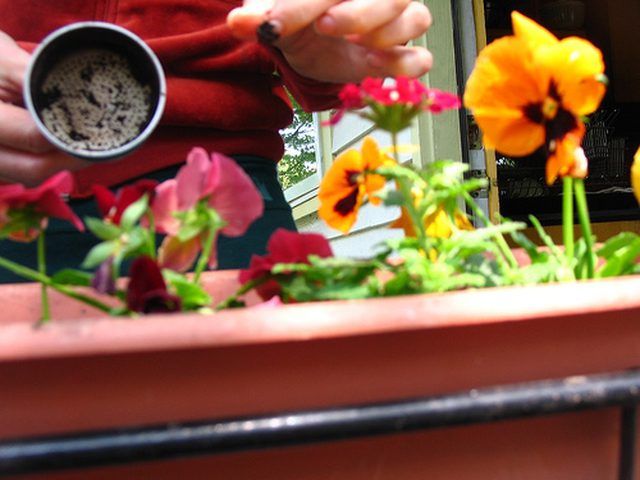Bulbs
Flower Basics
Flower Beds & Specialty Gardens
Flower Garden
Garden Furniture
Garden Gnomes
Garden Seeds
Garden Sheds
Garden Statues
Garden Tools & Supplies
Gardening Basics
Green & Organic
Groundcovers & Vines
Growing Annuals
Growing Basil
Growing Beans
Growing Berries
Growing Blueberries
Growing Cactus
Growing Corn
Growing Cotton
Growing Edibles
Growing Flowers
Growing Garlic
Growing Grapes
Growing Grass
Growing Herbs
Growing Jasmine
Growing Mint
Growing Mushrooms
Orchids
Growing Peanuts
Growing Perennials
Growing Plants
Growing Rosemary
Growing Roses
Growing Strawberries
Growing Sunflowers
Growing Thyme
Growing Tomatoes
Growing Tulips
Growing Vegetables
Herb Basics
Herb Garden
Indoor Growing
Landscaping Basics
Landscaping Patios
Landscaping Plants
Landscaping Shrubs
Landscaping Trees
Landscaping Walks & Pathways
Lawn Basics
Lawn Maintenance
Lawn Mowers
Lawn Ornaments
Lawn Planting
Lawn Tools
Outdoor Growing
Overall Landscape Planning
Pests, Weeds & Problems
Plant Basics
Rock Garden
Rose Garden
Shrubs
Soil
Specialty Gardens
Trees
Vegetable Garden
Yard Maintenance
The Effects of Caffeine on Plants
The Effects of Caffeine on Plants. Some plants can benefit from the use of caffeine, depending on what type of caffeine you use. Other plants can be harmed due to the amount of caffeine you use, the acidity of the soil and the variety of plant tested. Still other plants may not appear to be affected either way.

Some plants can benefit from the use of caffeine, depending on what type of caffeine you use. Other plants can be harmed due to the amount of caffeine you use, the acidity of the soil and the variety of plant tested. Still other plants may not appear to be affected either way.
Types
Three forms of caffeine you could try to help the growth of your plant include dissolving some caffeine tablets in tap water, using the leftover coffee from your coffee pot or sprinkling coffee grounds on your plants.
Coffee Grounds
If you would like to see more lush growth in your lawns, ProfessorsHouse.com suggests sprinkling and spreading large amounts of coffee grounds over all the bare spots. After all, coffee grounds are a type of organic matter that have the ability to add nutrients to the soil.
To acquire large enough amounts of grounds, save your coffee grounds from home, request that your co-workers deposit the grounds from the company coffeemaker into a specified container, or get grounds for free from vendors such as Starbucks. Many Starbucks now allow free access to their used grounds for the benefit of customers who wish to mulch their lawns. The author from ProfessorsHouse.com states that this effort is part of Starbucks' corporate-level recycling program.
Warning
ProfessorsHouse.com does warn that although you can use either a thin or thick layer of coffee grounds, make certain you do not cover the grass to the point that water is repelled. In that case, you could become inundated with mushrooms. This author warns to watch out for gophers that might be attracted to your coffee grounds fertilizer. On the plus side, earthworms will also be drawn to your unique fertilizer. ProfessorsHouse.com authors state that since earthworms have the ability to eat enough in a 24-hour period to equal their body weight, your lawn will benefit from what they call "nature's Rototiller."
Recommendation
ProfessorsHouse.com recommends you reapply the coffee grounds every month or two. They indicate you should see your lawn turn a lush green. You can also use the coffee grounds at the base of shrubs and trees, or work them into the top layers of your flower beds.
Considerations
Another author who writes about the effects of coffee on plants, Rajiv Sighamony on Gomestic.com, recognizes that there are two schools of thought on this subject: those who don't think coffee will affect plant growth and those who do.
For those who do think coffee can help plants grow, he reminds us that it is difficult to determine whether it is just the caffeine in coffee that is making the difference or the fact that coffee also contains potassium and phosphorus.
Sighamony acknowledges that many public gardens use leftover coffee and coffee grounds to accelerate plant growth. On the other hand, he warns that using coffee beans will have a detrimental effect.
Caffeine Tablets
Three authors, Helene Boucher, Antoinetta Gensale and Pauline Lau, in the Fall 2001 issue of Dr. Jes Online, conducted an elaborate study to determine the effects of crushed-up caffeine tablets on the growth of soybean plants. They created a caffeine solution by dissolving the equivalent of 2 ? tablets (250 mg) of caffeine in about 2 cups of tap water.
These authors concluded that their mixture led to negative effects such as stunted growth, discolored leaves and stems and less sturdy or hardy plants.
Misconceptions
The editor of Dr. Jes Online saw fit to note, in his editorial comments, that although their research study was well done, they did not control for the soil content. In other words, those soybean plants might have failed to thrive due to the soil content and not just because they were watered with a caffeine solution.